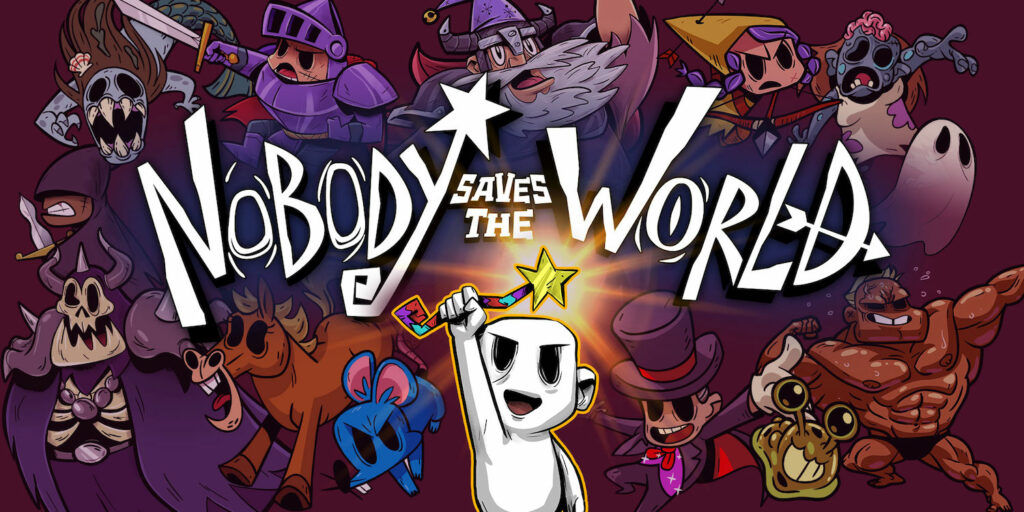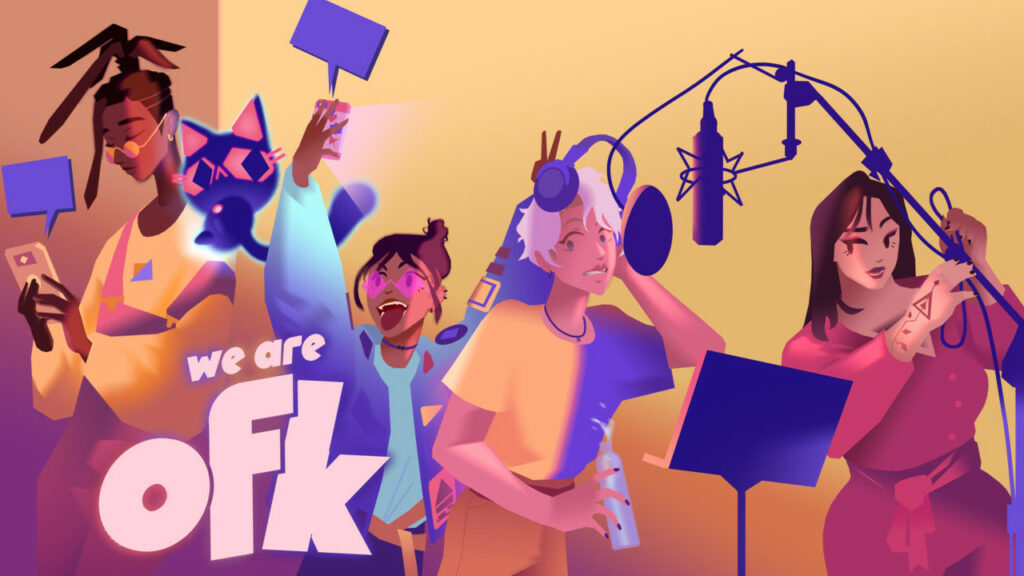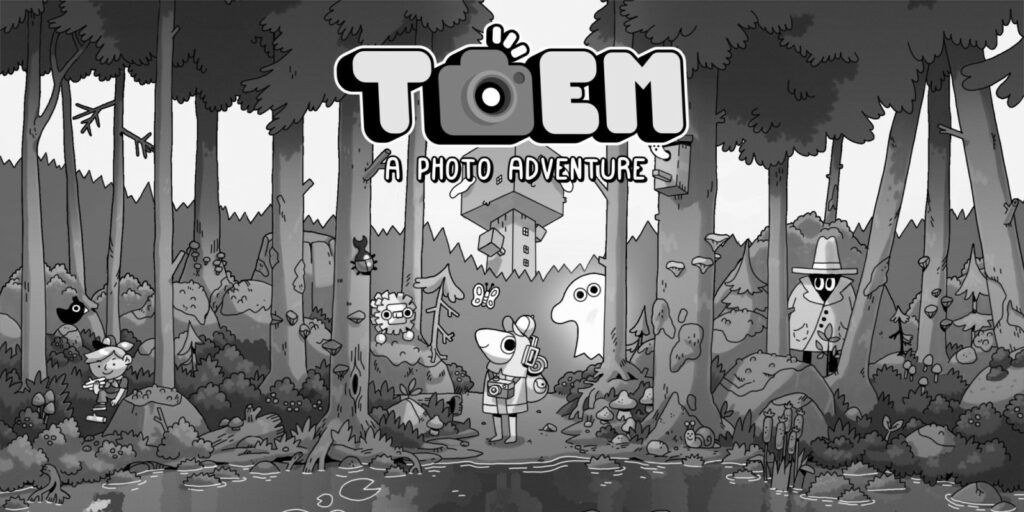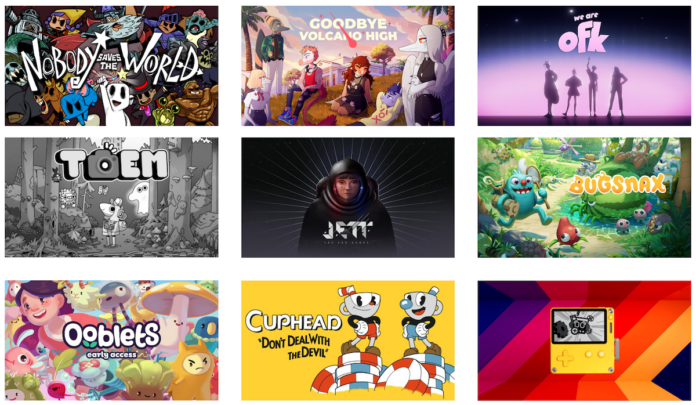[This article was originally published in the GameDiscoverCo game discovery newsletter, which is written by ‘how people find your game’ expert and GameDiscoverCo founder Simon Carless, and is a regular look at how people discover and buy video games in the 2020s.]
So, there are two choices in making games as a developer – ‘get a publisher’, or ‘don’t get a publisher’, right? And if you don’t get a publisher, you (maybe) have to hire a PR agency or something… right? Well, maybe. But it’s a lot more complex than that.
In fact, publishers offer a multi-faceted set of services. And in our view, it’s been difficult to hire in service companies to bridge the divide. Sure, you can get firms to help you with social media and PR. But some forward-thinking PR/marketing agencies are starting to go significantly beyond that.
Exhibit A: Popagenda, the boutique agency which – sure – does PR (for Cuphead, Grindstone, Landfall, Ooblets, the Playdate & more.) But it does more than that. For example, for the recently released (and excellent!) Nobody Saves The World from Drinkbox, Popagenda did “Marketing Strategy, Release Management, PR, Social, Trailers.”
What’s notable in there (besides ‘Marketing Strategy’) is ‘Release Management’. This means co-ordinating with QA and porting studios to ship on console and other platforms. And it involves a lot of the heavy lifting that can be a unique selling point of publishers. (Popagenda also does this for We Are OFK (below), TOEM, and more.)
So while some might quibble with ‘publisher as a service’ as a term, we’re owning it, and we claim Popagenda is it. So we asked Popagenda co-founders Geneviève St-Onge (G), Marie-Christine Bourdua (MC), and Nicolas Verge (N) some questions about the trend.
There seem to be a few ‘value added’ PR/marketing agencies such as yours that are effectively publishing partners. Why has this become a trend, do you think? What need does it fill?
G: The landscape has very much evolved into a space where teams/individuals can now pitch and secure their own limited recoup funding (either via first party partners, equity and non equity funding groups, etc) without the aggressive cut a publisher would take. Publishing tools and knowledge are also more readily available than they used to be. Equipped with all that, developers then only have to make the following call: do I have the desire to learn and time to invest into non-core development initiatives?
When the answer is no (because frankly, making a video game is time consuming enough), outsourcing partners begin to naturally appear: porting houses, localization groups, PR agencies, and advertising companies have already been around for a long time. Adding release management, production support, business development, trailer editing, and marketing strategy services to the mix was a no-brainer, at least for us.
MC: Releasing on consoles can be quite intimidating with all the first parties requirements and certification processes. Our approach gets particularly interesting when we come with the accumulated knowledge of nearly 50 SKUs we helped ship in the last 4 years. There’s nothing that brings us more joy than to solve problems for our teams before they even occur.
How do you structure your deals, in general – are they flat fee, a % of end results, or both?
G: We currently operate with a single hourly rate sheet for all of our clients. The only variable is how much time/bandwidth we need to dedicate to each project, depending on its scope and budget. Our team is extremely small, so we are severely picky about which projects and teams we sign on, making sure we are assigning sufficient time and resources to each and every one of them. We are brought on, do the work, and then move on; our purpose is to reduce overhead and studio burn rates.
N: I’ll add that we rarely turn down a project we’re very excited about because they don’t have a huge budget. We always try to make it work by being flexible or doing the biz dev to secure them the necessary funds.

Do you think platform relationships are becoming more vital over time? Should devs be spending more time developing them, or can agencies/publishers help there?
G: Absolutely. A lot of folks who self-publish their titles (with or without agency support) are proficient at maintaining good relationships with first party partners. Good business development is mutually beneficial – platforms are looking for great content, and developers are looking for the best business opportunities for their games and studios. It’s good for everyone involved to know what the other is looking for, and vice versa. Agencies can help facilitate those relationships, but the developers should always be at the forefront of those conversations.
N: First parties treat us similarly to a traditional publisher, since we have a portfolio of games we represent and we have regular meetings with their portfolio teams and marketing teams. A lot of our devs already have their contacts. But for teams that don’t, or teams that release a game every five years, it helps that we’re in constant communication with first parties already.
MC: Additionally, I think just the general understanding of how each platform operates is highly important. We often advise on how and when to proceed for different phases of the project. Knowing how to approach each first party is an important skill and the developer should always be a part of it.
What’s your view on simultaneous PC/console releases nowadays – is it always or generally a good idea?
MC: Even though shipping simultaneously on all platforms is quite the puzzle, from an organization standpoint it’s always easier to do and helps to mobilize the troops!
N: Marketing and PR-wise, it’s a lot simpler to do it all in one go. We especially work on a lot of console titles, and exclusivity deals don’t always allow it. It’s also rare for teams to just port to all consoles in one go unless they have the funding to do so. That said, a lot of games, especially Early Access games, find great success focusing on PC first and shipping later on consoles. Landfall (Totally Accurate Battle Simulator) is a great example of a studio we’ve been supporting with console publishing.

What are some key things that you feel have made recent games that you have partnered with succeed? (Is it game ‘hook’? Is quality enough?)
G: It’s a big Venn diagram of “does the game feel good/does it look good?”, plus “is now the right time/what other competing titles are there right now?”, and “is there available space for it on the airwaves?”, aka do folks have time to play it, or is it a packed review season/summertime press nightmare? Are you putting zero buffer in your certification process, thus not giving store teams enough time to properly support your game? A lot goes into it.
N: For us success takes different shapes, but yes the hook is part of it, the art direction is very important but genre is also crucial. I’m thinking of Nobody Saves the World for example, a new take on the action-RPG which is a very PC centric genre, and it led to the game being Drinkbox’s strongest Steam launch ever. We also worked on Cozy Grove, an Animal Crossing-like lifesim game which ended up selling very well, especially on Switch, even if it came out day and date on Apple Arcade.
And for a different example of success, seeing a smaller game like TOEM (below) getting the attention it got, winning a BAFTA recently and being celebrated overall, was really about the game’s quality. While it didn’t sell truckloads, it really set up the studio for future success and opened many doors for them. And that’s all due to the game being extremely special, something we recognized right away when we played an early build.
What practical advice do you have for developers who are not using a publisher, but looking for PR/marketing or (PR + marketing + extra services) partners?
G: Shop around. Find a team that resonates with yours, with shared values, and also have worked on similar types of games. The latter will provide them with previous experience, but also innate interest in your project.
N: A lot of us are booked long in advance and have limited bandwidth so reach out to folks whose portfolio matches your game ahead of time. Talk to your peers as well as to what they think you need, it’s good to have a grasp of what you’re actually looking for in terms of services.
Be careful about paying for services that you maybe don’t need. Especially with PR or events, it’s easy to sink a lot of money into that with very low / disappointing results. Not every game needs massive PR campaigns. And know that it’s all very collaborative – you’re not hiring folks and then you’re able to not think about marketing ever again. The more dev teams “give us”, the more we’re able to play around with.

Why aren’t you just running the company as a game publisher? Since you do a lot of those things anyhow….
N: We explored a lot of things when we started out four years ago, but it made sense to start as an agency. It allowed us to really make a name for ourselves, build a business and work with teams who were already self-publishing (Young Horses, Studio MDHR, Drinkbox, etc).
G: Our current agency model allows us the flexibility to choose our work and maximize our impact, which was the initial driver to start the business. Having no financial stake provides us with more impartiality when it comes to discussing opportunities (exclusives, events, partnerships) across our portfolio of clients.
While we don’t plan on funding games in the future, we do think there is space to grow into more of a hybrid co-publishing mode with limited terms. But we would have to find the exact right game for us in order to make that move.

